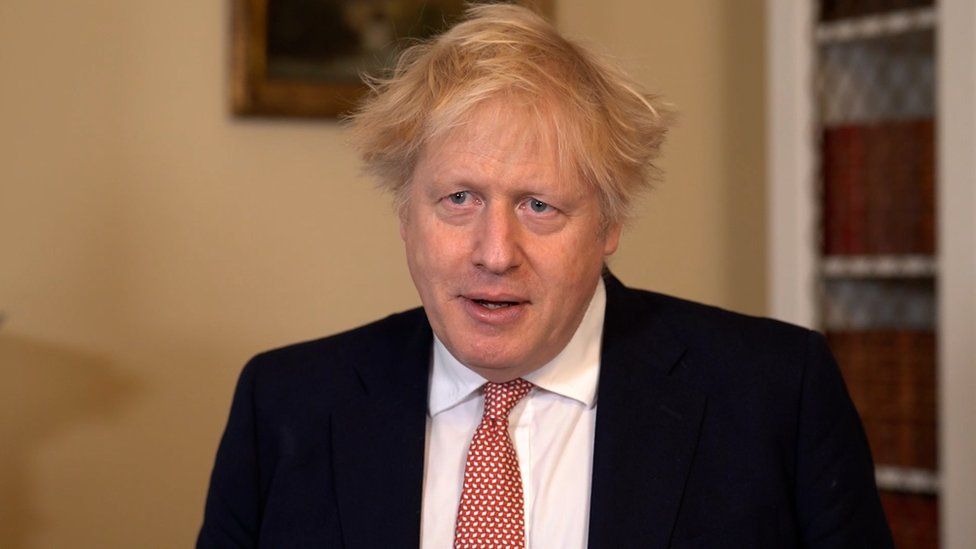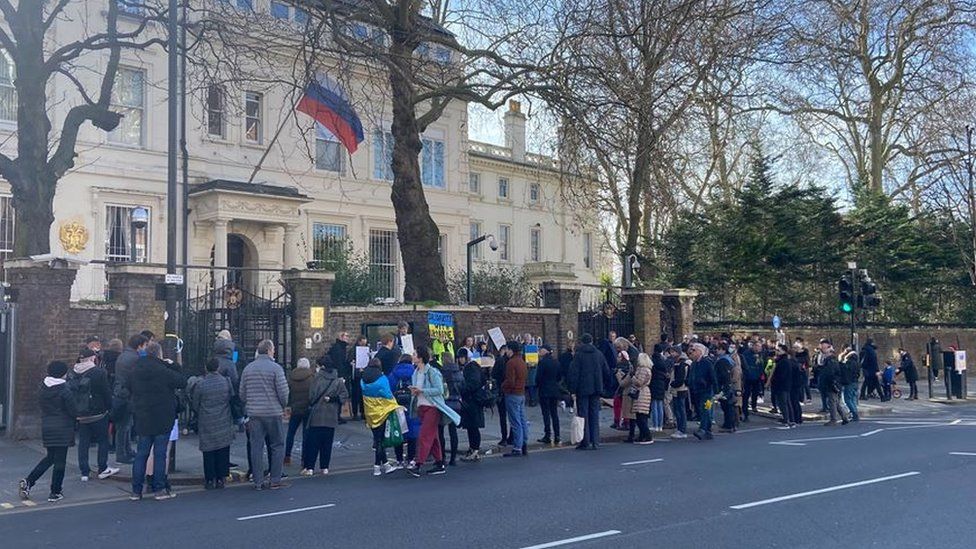Ukraine conflict: Britain sending more arms as fighting reaches Kyiv
 Image source, PA Media
Image source, PA MediaBoris Johnson has hailed plans for extra military and humanitarian support to be sent to Ukraine.
Britain is among more than 25 countries to pledge to continue to supply arms, as capital Kyiv remains under attack from Russian forces.
Protests and vigils in support of Ukraine are being held across the UK, including in London and Manchester.
And the Duke and Duchess of Cambridge have said they "stand" with the people of Ukraine as they "bravely fight".
In a tweet, the couple said they had met President Volodymyr Zelensky and his wife in 2020 and said: "Today we stand with the president and all of Ukraine's people as they bravely fight for that future."
Ukraine faces "days, weeks, months more" of heavy fighting, armed forces minister James Heappey has warned.
"It is going to be brutal," he told the BBC. "We are going to see some horrendous things on our TV screens."
The agreement to provide Ukraine with ammunition, anti-tank weapons and humanitarian support was made at a meeting convened by Defence Secretary Ben Wallace on Friday, attended by countries including the US and Canada.
The UK has also offered to conduct logistics operations to support the delivery of donations, the Ministry of Defence (MoD) said.
The prime minister said he was "pleased even more allies have come forward with defensive and humanitarian aid", adding: "We must stand with the Ukrainian people as they defend their countries and democracies everywhere."
Mr Heappey said he could not disclose operational details of how the extra support would be delivered to the Ukraine but said it might be "on its way right now".

Russia attacks Ukraine: More coverage
- LIVE: Latest updates from on the ground
- THE BASICS: Why is Putin invading Ukraine?
- FROM KYIV: BBC Ukraine editor: There is no safe place any more
- FROM MOSCOW: Shock and support in Russian capital
- IN MAPS: How Russia carried out the invasion

One of the vigils is taking place outside the Russian Embassy in London. There have been chants of "Russia stop the war", "Putin stop the war" and "leave Ukraine alone".
Supporters of Ukraine are also gathering elsewhere in the UK on Saturday, including in Manchester's Piccadilly Gardens. More vigils have been organised for Sunday.
Buildings across the country, including London landmarks the London Eye and 10 Downing Street, have been brightly lit in yellow and blue this week in a display of solidarity with Ukraine.

Mr Heappey told the BBC that the UK is continuing to press for Russia to be excluded from the Swift system of international banking payments, but more diplomacy was needed to get international agreement.
Mr Heappey also said the MoD is working on plans to support a resistance movement and a government in exile if Ukraine were to be finally overrun.
And asked if the UK was to accept Ukrainian refugees, he said this is a "work in progress" for Home Secretary Priti Patel.
The Scottish government has already said it would play its part if a resettlement programme to bring Ukraine nationals to the UK is launched.
The UK has introduced sanctions against Russia's President Vladimir Putin and Foreign Minister Sergey Lavrov.
According to the UK's sanctions list they will face asset freezes - a measure also being imposed by the EU and the US - but not a travel ban.
It is unclear how significant Mr Putin and Mr Lavrov's assets in the US, EU and UK are and what practical impact the sanctions will have on them.
The UK announced a package of strengthened sanctions against Russia on Thursday, targeting Russian banks, businesses and oligarchs.
National airline Aeroflot has been banned from landing at UK airports or flying through its airspace, as have all Russian private jets.



No comments